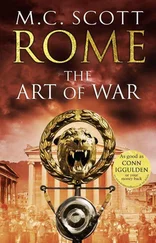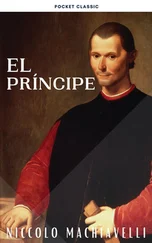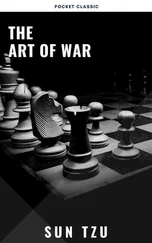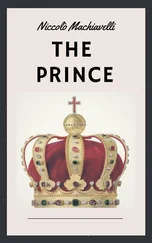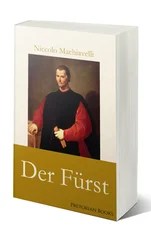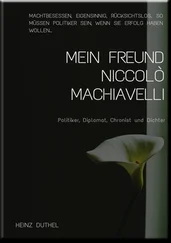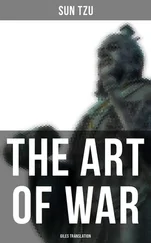COSIMO
How are those who are or are not suitable to fight chosen?
FABRIZIO
I want to talk of the manner of selecting a new organization in order to make it afterwards into an army; which yet also apply in the discussion of the selection that should be made in re-manning an old (established) organization. I say, therefore, that how good the man is that you have to select as a soldier is recognized either from his experience, shown by some excellent deeds of his, or by conjecture. The proof of virtu cannot be found in men who are newly selected, and who never before have been selected; and of the former, few or none are found in an organization which is newly established. It is necessary, therefore, lacking experience to have recourse to conjecture, which is derived from their age, profession, and physical appearance. The first two have been discussed: it remains to talk of the third. And yet I say that some have wanted that the soldier be big, among whom was Pyrrhus: Some others have chosen them only from the strength of the body, as Caesar did: which strength of body is conjectured from the composition of the members and the gracefulness of aspect. And yet some of those who write say that he should have lively and merry eyes, a nervy neck, a large breast, muscular arms, long fingers, a small stomach, round hips, sleek legs and feet: which parts usually render a man strong and agile, which are the two things sought above everything else in a soldier. He ought, above all, to have regard for his habits and that there should be in him a (sense of) honesty and shame, otherwise there will be selected only an instrument of trouble and a beginning of corruption; for there is no one who believes that in a dishonest education and in a brutish mind, there can exist some virtu which in some part may be praiseworthy. Nor does it appear to me superfluous, rather I believe it necessary, in order for you to understand better the importance of this selection, to tell you the method that the Roman Consuls at the start of their Magistracy observed in selecting the Roman legions. In which Deletto, because those who had to be selected were to be a mixture of new and veteran men ((because of the continuing wars)), they proceeded from experience with regard to the old (veteran) men, and from conjecture with regard to the new. And this ought to be noted, that these Deletti are made, either for immediate training and use, or for future employment.
I have talked, and will talk, of those that are made for future employment, because my intention is to show you how an army can be organized in countries where there is no military (organization), in which countries I cannot have Deletti in order to make use of them. But in countries where it is the custom to call out armies, and by means of the Prince, these (Deletti) exist, as was observed at Rome and is today observed among the Swiss. For in these Deletti, if they are for the (selection of) new men, there are so many others accustomed to being under military orders, that the old (veteran) and new, being mixed together, make a good and united body. Notwithstanding this, the Emperors, when they began to hold fixed the (term of service of the) soldiers, placed new men in charge over the soldiers, whom they called Tironi, as teachers to train them, as is seen in the life of the Emperor Maximus: which thing, while Rome was free, was instituted, not in the army, but within the City: and as the military exercises where the young men were trained were in the City, there resulted that those then chosen to go to war, being accustomed in the method of mock warfare, could easily adapt themselves to real war. But afterwards, when these Emperors discontinued these exercises, it was necessary to employ the methods I have described to you. Arriving, therefore, at the methods of the Roman Selection, I say that, as soon as the Roman Consuls, on whom was imposed the carrying on of the war, had assumed the Magistracy, in wanting to organize their armies ((as it was the custom that each of them had two legions of Roman men, who were the nerve (center) of their armies)), created twenty four military Tribunes, proposing six for each legion, who filled that office which today is done by those whom we call Constables. After they had assembled all the Roman men adept at carrying arms, and placed the Tribunes of each legion apart from each of the others. Afterwards, by lot they drew the Tribes, from which the first Selection was to be made, and of that Tribe they selected four of their best men, from whom one was selected by the Tribunes of the first legion, and of the other three, one was selected by the Tribunes of the second legion; of the other two, one was selected by the Tribunes of the third, and that last belonged to the fourth legion. After these four, four others were selected, of whom the first man was selected by the Tribunes of the second legion, the second by those of the third, the third by those of the fourth, the fourth remained to the first. After, another four were chosen: the first man was selected by the (Tribunes of the) third (legion), the second by the fourth, the third by the first, the fourth remained to the second. And thus this method of selection changed successively, so that the selection came to be equal, and the legions equalized. And as we said above, this was done where the men were to be used immediately: and as it was formed of men of whom a good part were experienced in real warfare, and everyone in mock battles, this Deletto was able to be based on conjecture and experience. But when a new army was to be organized and the selection made for future employment, this Deletto cannot be based except on conjecture, which is done by age and physical appearance.
COSIMO
I believe what you have said is entirely true: but before you pass on to other discussion, I want to ask about one thing which you have made me remember, when you said that the Deletto which should be made where these men are not accustomed to fighting should be done by conjecture: for I have heard our organization censured in many of its parts, and especially as to number; for many say that a lesser number ought to be taken, of whom those that are drawn would be better and the selection better, as there would not be as much hardship imposed on the men, and some reward given them, by means of which they would be more content and could be better commanded. Whence I would like to know your opinion on this part, and if you preferred a greater rather than a smaller number, and what methods you would use in selecting both numbers.
FABRIZIO
Without doubt the greater number is more desirable and more necessary than the smaller: rather, to say better, where a great number are not available, a perfect organization cannot be made, and I will easily refute all the reasons cited in favor of this. I say, therefore, first, that where there are many people, as there are for example in Tuscany, does not cause you to have better ones, or that the Deletto is more selective; for desiring in the selection of men to judge them on the basis of experience, only a very few would probably be found in that country who would have had this experience, as much because few have been in a war, as because of those few who have been, very few have ever been put to the test, so that because of this they merit to be chosen before the others: so that whoever is in a similar situation should select them, must leave experience to one side and take them by conjecture: and if I were brought to such a necessity, I would want to see, if twenty young men of good physical appearance should come before me, with what rule I ought to take some or reject some: so that without doubt I believe that every man will confess that it is a much smaller error to take them all in arming and training them, being unable to know (beforehand) which of them are better, and to reserve to oneself afterwards to make a more certain Deletto where, during the exercises with the army, those of greater courage and vitality may be observed. So that, considering everything, the selection in this case of a few in order to have them better, is entirely false. As to causing less hardship to the country and to the men, I say that the ordinance, whether it is bad or insufficient, does not cause any hardship: for this order does not take men away from their business, and does not bind them so that they cannot go to carry out their business, because it only obliges them to come together for training on their free days, which proposition does not do any harm either to the country or the men; rather, to the young, it ought to be delightful, for where, on holidays they remain basely indolent in their hangouts, they would now attend these exercises with pleasure, for the drawing of arms, as it is a beautiful spectacle, is thus delightful to the young men. As to being able to pay (more to) the lesser number, and thereby keeping them more content and obedient, I reply, that no organization of so few can be made, who are paid so continually, that their pay satisfies them. For instance, if an army of five thousand infantry should be organized, in wanting to pay them so that it should be believed they would be contented, they must be given at least ten thousand ducats a month. To begin with, this number of infantry is not enough to make an army, and the payment is unendurable to a State; and on the other hand, it is not sufficient to keep the men content and obligated to respect your position. So that in doing this although much would be spent, it would provide little strength, and would not be sufficient to defend you, or enable you to undertake any enterprise. If you should give them more, or take on more, so much more impossible would it be for you to pay them: if you should give them less, or take on fewer, so much less would be content and so much less useful would they be to you. Therefore, those who consider things which are either useless or impossible. But it is indeed necessary to pay them when they are levied to send to war.
Читать дальше


